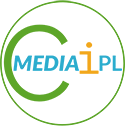Hello readers!
We live in an extremely dynamic time. The world is fighting a new disease caused by the coronavirus COVID-19 and its modifications. People learn about the scale and the outbreak of the epidemic by the media. And they flood the broadcast and the Internet with unpleasant truths being told around the clock to prevent infection. Information springs from everywhere – true-false, rumours-real, official-unofficial,…, it becomes more and more difficult to navigate the ocean of information, numbers, forecasts.
If forensic psychologists have methodologies based on typical features and body language to recognize whether a witness or accused person is telling the truth or lying, then the Internet reader is not able to reach the body language, or the author’s eyes, look, gestures or thoughts. Therefore, the reader should be able to read competently, make informed choices and be able to sift the “pearls” from the chaff in the media.
Media literacy is extremely important on the agenda of our society, especially now when it plays a key role in our lives; when the world is facing a monstrous challenge. As a consequence, it is crucial to acquire more knowledge, to form a good understanding of the mechanisms of work in the media, the new chances for them, the cultural dimension of media content and its diversity.
Now the danger of a worldwide pandemic is looming over the heads of humanity. The streets, cultural institutions, establishments, even universities and schools are deserted like in a surreal movie, parks often become ghostly, people are locked up at home and rely even more on the media. That’s why it is all the more urgent to base our core values, to be able to be reasonable and thinking, to read with understanding, to deal with the negative effects of misinformation and falsehood in the media, to restore humanity and trust with each other, to give back our belief in the freedom of the media and to make the world around us beautiful, colourful and cheerful. And build our own vaccine against fake news and manipulative information to keep us free.
Chief Assist. Prof. Evelina Zdravkova, PhD, project manager


 Български
Български
